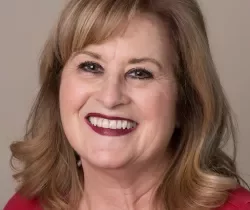“Become comfortable with permanent uncertainty.” ~ Unknown
Since March 2020, your lives as planners, show managers and suppliers have been nothing short of topsy-tervy. For many seasoned event professionals, the last 19 months are new to someone whose planning cycle is three to five years in the future.
While many are touting a “new normal,” what is that exactly? And how do you pivot when your local, state or federal government changes direction? What happens when you have attendees who want to cancel or come at the last minute? One guiding principle is to stay calm.
Let’s talk through some alternatives, determine the planning timeline to implement it and see where you might be able to reduce risk while increasing attendee engagement along the way.
Follow CDC, WHO, and State Guidelines
Let attendees know you are following all information from these organizations daily and will be sharing information on your social media channels and website as things change.
Planning time: Limited
Fallback options: Fluidity is the name of the game. Move your meeting from inside to out, from virtual to in-person or hybrid. The more options you plan for, the better chances you will be able to move quickly where you have to be.
Answer All Questions, All The Time
Remind attendees how they can reach you: phone, fax, email, chat, mail or other methods. Please encourage them to ask questions so that you can address their concerns before and during the event.
Planning time: One to three months, as you will need to have people in place to answer questions as they come in.
Offer On-site Testing
This can include rapid testing, temperature checks and asking them to fill out a health questionnaire every day. A company can sponsor the testing, and results can be given to the attendee in 3-10 minutes.
Planning time: At least one month if you want it sponsored.
Fallback options: You can accept their vaccine card as proof they are vaccinated and allow them to skip this option.
Require Proof of Vaccination
Along with their photo id, attendees would have to show their vaccine card to event management.
Planning time: One day to one week, however, be prepared for pushback. Individuals may wish for a total refund or put not-so-kind messaging on your social media. Once your organization commits, you have to follow through.
Fallback options: On-site testing or constant mask-wearing.
Remind All of the Symptoms and Offer Free Online Consultations
You probably know someone who came to work, school or a friend’s house and had COVID-19. They either didn’t know the symptoms or denied that they had them. Posting this information repeatedly on social media, putting it in attendee rooms and broadcasting it throughout the event will remind people of the symptoms. You can either pay for the televisits or secure a sponsor.
Planning: At least one month before your event.
Fallback option: Turn your entire event into a virtual one.
Mandate Mask Wearing
Attendees, regardless of their vaccination status, must always wear a mask while they are indoors. This requires enforcement and proper wearing to be effective.
Planning: At least one month because you must say it repeatedly.
Fallback Options: If they don't want to wear a mask, offer a virtual option or give them a full refund.
Reschedule Your Event
This is not an attractive option, but it may be your safest option. Postponing the event one month to one year allows you the flexibility to take a breather without refunding most of the fees you’ve already collected. Please remember, we are still in a pandemic, and until we hit herd immunity, chances are we will continue to have resurgent highs and lows, thus a constant state of uncertainty.
Planning: Little
Fallback option: Go completely virtual
The Operative Word is Fluidity
Think of meetings and events as a continuum: at one end are no meetings of any sort, and on the other are large, full-fledged conventions and trade shows with people crammed into conference halls or trade show floors.
We will continue to track somewhere in between during this time. The planners with tremendous success will move fluidly up and down the scale with loads of contingencies, always including some level of PPE rentals to keep in-person attendees safe.
Don’t miss any event-related news: Sign up for our weekly e-newsletter HERE and engage with us on Twitter, Facebook, LinkedIn and Instagram!



Add new comment